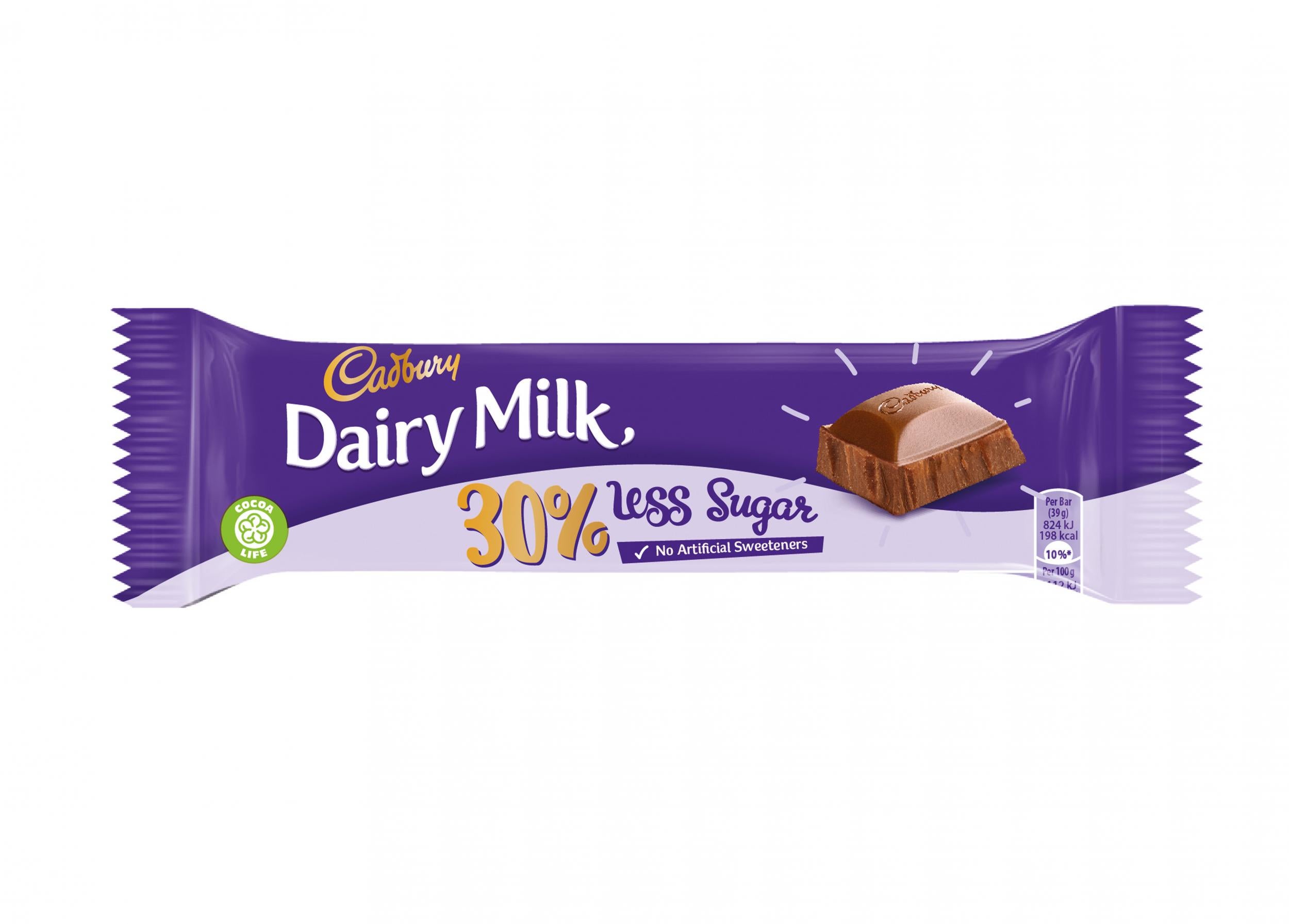Cadbury to launch Dairy Milk bar with 30 per cent less sugar
The company also unveiled similar sugar reduction plans for other products, including Wine Gums and Jelly Babies

Your support helps us to tell the story
From reproductive rights to climate change to Big Tech, The Independent is on the ground when the story is developing. Whether it's investigating the financials of Elon Musk's pro-Trump PAC or producing our latest documentary, 'The A Word', which shines a light on the American women fighting for reproductive rights, we know how important it is to parse out the facts from the messaging.
At such a critical moment in US history, we need reporters on the ground. Your donation allows us to keep sending journalists to speak to both sides of the story.
The Independent is trusted by Americans across the entire political spectrum. And unlike many other quality news outlets, we choose not to lock Americans out of our reporting and analysis with paywalls. We believe quality journalism should be available to everyone, paid for by those who can afford it.
Your support makes all the difference.Cadbury is launching a new version of the Dairy Milk bar containing 30 per cent less sugar as part of industry efforts to tackle the obesity crisis.
The lower sugar chocolate, which contains added fibre, will go on sale from next year.
It took 20 scientists, nutritionists and chocolatiers almost two years to develop the new confectionery. They insist the new bar tastes as good as the original, but the two kinds of chocolate will continue to be sold alongside each other.
Cadbury owner Mondelez International said the new chocolate bar was the “most significant innovation in the brand’s history”. It also announced plans to reduce sugar in other snacks including Oreo, Maynards Bassetts Wine Gums and Jelly Babies.
Glenn Caton, Mondelez International president for Northern Europe, said some of the sugar had been replaced with fibre to maintain the original bar’s structure and texture, but said the reformulation was a “trade secret”.
He described the taste of the new bar as “incredibly similar” to the original, saying: “It tastes very, very close to the original but a little less sweet. It’s been tested extensively on consumers and they love it.”
The calorie content remains similar between the two bars, but the sugar content has dropped from 56g per 100g in the original bar to 39g per 100g in the new version. The new recipe does not contain artificial sweeteners, colours or preservatives.
Mondelez said it would look to apply the approach to other Cadbury Dairy Milk products if it proves successful with consumers.
The company also unveiled plans for the next two years to release its Cadbury Boost+ Protein bar with 32 per cent less sugar, 30 per cent lower sugar versions of its Maynards Bassetts Wine Gums and Jelly Babies products and a line of its BelVita breakfast biscuits with 40 per cent less sugar.
In the longer term, Mondelez plans to cut sugar in Cadbury Brunch bars and Oreo biscuits.
Mr Caton said the company recognised that consumers wanted to manage their sugar intake.
He said: “Our brands have been around for hundreds of years. They are a part of British culture and heritage and play a special role in people’s lives as treats to be enjoyed during a moment of indulgence.
“Taking sugar out of our products isn’t easy and will take time. Ultimately they are treats and people expect them to taste great, but we’re working hard to find innovative solutions that provide more choice without compromising on their world-renowned taste and quality.”
Last month the Government unveiled the second phase of proposals to halve childhood obesity by 2030.
They include proposals to reduce “pester power” by stopping supermarkets from displaying unhealthy foods at checkouts, aisle ends and store entrances, as well as stopping products high in fat, sugar and salt from being included in buy-one-get-one-free deals.
An end to sales of energy drinks to children, calorie labelling on menus in restaurants, cafes and takeaways, and the introduction of a 9pm watershed for advertising unhealthy products and similar measures online will also be put to consultation.
Earlier this year campaigners Action on Sugar called for a 20 per cent sales tax on confectionery.
Dr Alison Tedstone, chief nutritionist at Public Health England, said: “We’re pleased that Mondelez is the latest household name to commit to offering healthier products.
“This announcement shows reducing sugar in chocolate confectionery is possible and we look forward to seeing future reductions across more of its confectionery range”.
Additional reporting by Press Association
Subscribe to Independent Premium to bookmark this article
Want to bookmark your favourite articles and stories to read or reference later? Start your Independent Premium subscription today.
Join our commenting forum
Join thought-provoking conversations, follow other Independent readers and see their replies
Comments